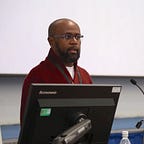Literature & Cinema: when the writer becomes the character
Literature and motion pictures have got an inner connection since the early times of the seventh art, including, for example, the adaptation of biblical stories to the big screen, adaptation of best-seller novels and even titles that were previously completely unknown to the public and soon afterwards they became a hit editorial success across the globe.
Besides, there have also been opposite situations where successful movies have inspired the writing of books based on the plot displayed on the big screen. Within that, it is quite common to watch stories centred on romance, biography of historical figures, individuals overcoming some sort of challenging situation, unexpected achievements, conflictual relationships, stories based on characters with special abilities, and so forth.
Nevertheless, what we notice quite frequently is the fact that there is an important component in this process that oftentimes is either overlooked by many or receives little attention. I am talking about writers.
This can be due to the development of the story per se that may not be centred around them, or sometimes their role is too marginal, and the audience practically does not notice their presence in the story. Moreover, it can also happen that although they have a relevant role in the plot, the movie did not reach a sounding commercial success and, consequently, the general public does not acknowledge the story and even less the character.
Having said that, I have been an independent writer for a few years and I have successfully self-published several titles of different genres. And, in addition to writing, I am also passionate about cinema. However, one aspect that has always fascinated me comprises the interplay between literature and cinema.
What do I mean by that? I refer to movie productions involving writers either as the central character or performing some sort of relevant supporting role (sometimes even as the narrator of the story) and/or alternatively, the craft of writing as a relevant component in the story.
Therefore, just to give a couple of illustrative examples, movies centred around bookshop owners such as 84 Charing Cross Road (1987), You’ve Got Mail (1998) and Nothing Hill (1999), among others with a similar approach were not included in this compilation. Likewise, TV series such as The Truth About the Harry Quebert Affair (2018) were also disregarded in this compilation because it comprises a product made for TV rather than the big screen, despite its good quality.
Then, inspired by this personal interest and according to the above criteria, I have decided to compile a brief timeline of this interplay through 40+ movies as shown below.
Consequently, the aim of this article was first to shed some light upon this character present in so many movies productions but oftentimes overlooked. Second, to pay a tribute to this character that master the art of crafting words to make our imagination gain wings but once on the big screen not everyone fully acknowledges and recall their relevance.
All things considered, my expectation is that you have enjoyed this brief compilation as much as I have enjoyed developing it and that it succeeds in contributing to the development in the reader of a different perspective regarding the role of writers on the big screen.
Finally, if you have noticed that I have missed any title (or even misplaced one or two), please leave your comments below. I would love to hear your opinion about this topic. Furthermore, if you have seen some (or all) of the listed movies, which ones are your favourites? Just drop a couple of lines with your thoughts about it. It would be greatly appreciated.
